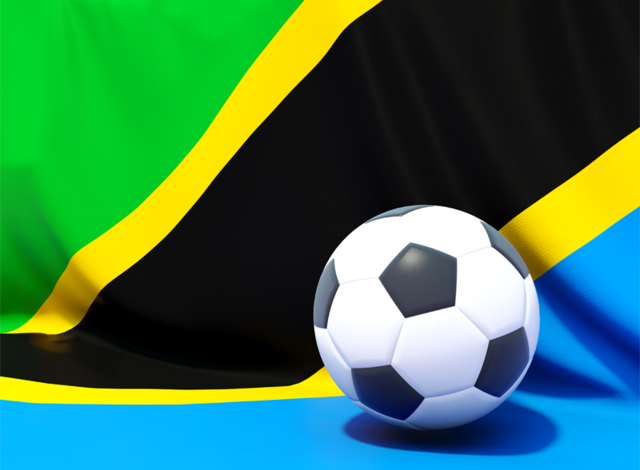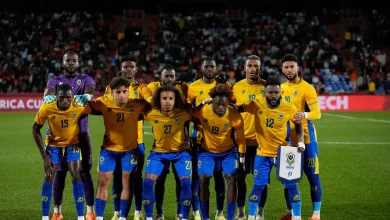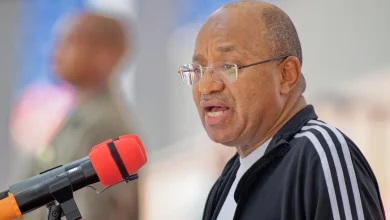How Tanzania’s football gains ground in Africa’s elite circles

DAR ES SALAAM: TANZANIA’S growing influence in African football has taken another step forward, with three of its players and two clubs earning nominations for the 2025 CAF Awards, a recognition of the country’s steady rise in both men and women’s competitions.
Esther Maseke, Winfrida Gerald and Shomari Kapombe, have been included among Africa’s top performers, alongside nominations for Simba SC, JKT Queens, and the national women’s team.
The multiple appearances on the shortlist underline Tanzania’s growing presence in African football.
The CAF Awards, organised by the Confederation of African Football (CAF), honour players, clubs and teams for outstanding performances each year.
For a long time, the event has been dominated by countries such as Egypt, Nigeria and Morocco. The inclusion of several Tanzanian names this year signals progress in both the men and women’s game and reflects how the country’s football has matured in recent seasons.
Kapombe, who plays for Simba SC, has been nominated for Men’s Interclub Player of the Year. His name on the list highlights Simba’s role in raising the standard of Tanzanian football. The club has become a consistent participant in CAF competitions and its record since 2018 illustrates steady improvement.
In six editions of the CAF Champions League since 2018, Simba have reached the group stage four times. On all four occasions they progressed to the quarter-finals, a level of consistency rarely achieved by East African clubs.
In the CAF Confederation Cup, Simba have taken part three times over the same period, reaching the group stage twice and advancing beyond it each time. They finished as quarterfinalists in 2021 and as runnersup last season.
ALSO READ: Tanzanian trio nominated for CAF awards
This record shows that Simba have moved from occasional participation to regular competitiveness at continental level. Their progress reflects better club organisation, stronger technical planning and investment in player development.
Continued participation has also given Tanzanian players experience against the best teams in Africa, raising the quality of the domestic league and attracting more attention from outside the country.
The women’s game has followed a similar upward path. Winfrida Gerald and Esther Maseke, both of JKT Queens, are among the finalists for Women’s Young Player of the Year, while teammate Jamila Rajab is listed for Women’s Interclub Player of the Year.
JKT Queens are also nominated for Women’s Club of the Year, and the national women’s team is in contention for Women’s National Team of the Year.
JKT Queens’ rise has been steady and based on results. The club have won the Mainland Women’s Premier League four times and have performed strongly in regional competitions. They have lifted the CECAFA Women’s Champions League twice, first in 2023 and again in the recently concluded 2024 season, out of four editions of the tournament.
Their success has made them regular representatives of Tanzania at continental level. This year marks their second appearance in the CAF Women’s Champions League, confirming their place among the leading women’s clubs in East and Central Africa.
The achievements of Simba and JKT Queens are part of a wider pattern in Tanzanian football. Over the past decade, several clubs have adopted more professional management, improved facilities and placed greater emphasis on youth development.
These changes, supported by the Tanzania Football Federation and other stakeholders, have produced better results domestically and regionally. The repeated presence of Tanzanian clubs and players in CAF competitions is the clearest sign of that progress.
Recognition through the CAF Awards carries broader significance. It provides motivation for players and coaches and demonstrates to sponsors and administrators that investment in the game yields visible results. For the public, it represents national pride and confirmation that Tanzanian football can compete beyond its borders.
The rise of the women’s game adds another important dimension. Players such as Winifrida Gerald, Esther Maseke and Jamila Rajab represent a new generation that is benefiting from improved league structures and greater opportunity.
Their nominations show that Tanzanian women’s football is not only active but competitive across the region and now gaining continental attention. It also highlights the importance of maintaining support for women’s sports and ensuring equal access to development programmes.
Tanzania’s growing presence in CAF competitions also contributes to a broader shift within African football.
For many years, North and West African nations dominated club and individual awards. The steady involvement of Tanzanian clubs and players shows that East Africa is narrowing the gap through consistency, investment and technical improvement. Participation alone is no longer the measure of success; performance and progression are.
As the 2025 CAF Awards approach, the focus will be on whether any of the Tanzanian nominees can claim a trophy. Regardless of the final results, their nominations already stand as an achievement. They show how far Tanzanian football has advanced and how sustained effort at club and national level can produce recognition at the highest stage.
From Simba’s strong run in CAF tournaments to JKT Queens’ league and regional titles, Tanzania’s representation in this year’s awards is built on results, not reputation. The pattern of qualification, competitiveness and improvement since 2018 points to a football system that is maturing with each season.
Whether or not the nominees return with awards, their presence among Africa’s best confirms that Tanzania’s football has entered a new phase, one defined by consistent participation, growing success and recognition across the continent.





